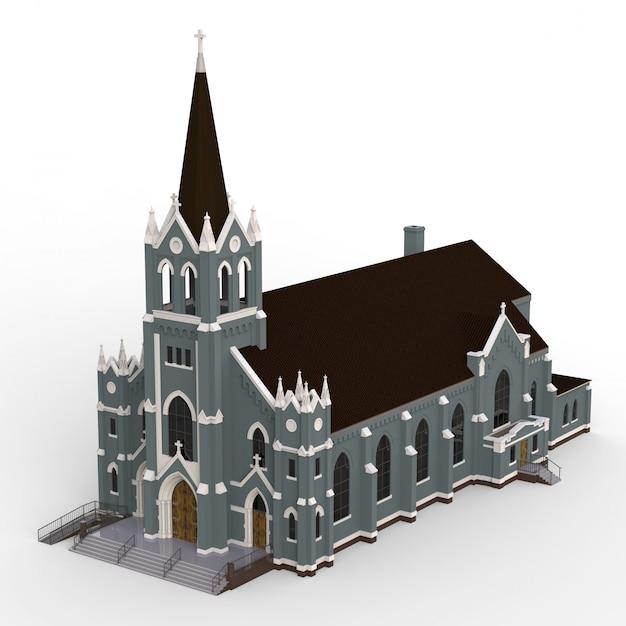Scientific discoveries and advancements have shaped the world we live in today, but more than a few centuries ago, they were met with skepticism and even hostility. Enter the Scientific Revolution, a period of intense curiosity, exploration, and groundbreaking scientific discoveries that took place from the 16th to the 18th century. As thinkers challenged traditional beliefs and sought to understand the natural world through scrutiny and empirical evidence, one institution found itself at the center of the storm: the Catholic Church.
In this blog post, we’ll delve into the complex relationship between the Church and the Scientific Revolution. We’ll explore the challenges to authority faced by scientific revolution thinkers, examine the response of the Catholic Church, and understand how the Church really felt about this period of intellectual upheaval. Additionally, we’ll touch upon the significance of the scientific revolution, its impact on the Catholic Church, and its contribution to the broader Enlightenment movement. So, fasten your seatbelts as we embark on a journey to uncover the intriguing interplay between faith and reason during this transformative era.
Now, let’s dig deep into the intricate history and unravel the fascinating encounters between the Church and the scientific revolution!

How the Church Perceived the Scientific Revolution
The Scientific Revolution of the 16th and 17th centuries brought forth a wave of groundbreaking discoveries and advancements. However, the church’s reaction to this intellectual upheaval was not always receptive. Let’s explore how the Church, at that time, perceived the scientific revolution and its potential ramifications.
A Clash of Beliefs: Religion vs. Science
The Inquisition’s Watchful Eye
During the scientific revolution, the Church found itself in a curious dilemma. On one hand, it wanted to maintain the authority and dogma that it had upheld for centuries. On the other, the influx of scientific knowledge threatened to challenge long-held religious beliefs.
The Catholic Church, in particular, regarded itself as the ultimate authority on matters of faith and truth. With thinkers like Galileo Galilei who championed the heliocentric model of the universe, conflicts arose. The Church saw science as encroaching upon their dominion.
The Tension Between Faith and Reason
The existence of scientific theories that questioned biblical teachings unsettled some within the Church. These challenges to the traditional worldview raised concerns about heresy and deviation from the Church’s established doctrines.
Many clergymen felt threatened by the idea that scientific truths contradict biblical narratives. This led to a struggle between those who defended the divine realm of faith and those who embraced the empirical realm of reason.
A Slow Acceptance and Implications
A Reluctant Shift
While some Church leaders initially resisted the scientific revolution, others eventually acknowledged the importance of reconciling faith with scientific progress. Slowly, a more nuanced understanding emerged, with some religious figures recognizing that science could reveal the wonders of God’s creation.
However, complete acceptance was gradual and far from widespread. It took time for the Church to reevaluate its stance and adopt a more tolerant approach toward scientific advancements.
Reinventing Interpretations
To reconcile the scriptures with scientific discoveries, the Church sought to reinterpret certain passages. The idea of metaphorical or allegorical interpretations emerged to harmonize the literal interpretation of religious texts with new scientific knowledge.
By reevaluating and reinterpreting their teachings, the Church aimed to ensure that the scientific revolution did not undermine its authority while remaining faithful to its core beliefs.
The Aftermath and Lessons Learned
The experience of the Church during the scientific revolution serves as a reminder of the constant interplay between tradition and progress. It highlights the challenges faced by established institutions when confronted with new ideas that may challenge long-standing beliefs.
Ultimately, the scientific revolution paved the way for a deeper understanding of the natural world and the expansion of human knowledge. The relationship between religion and science has continued to evolve and find new forms of harmony and coexistence.
In embracing the complexities of the scientific revolution, the Church learned valuable lessons about the need for openness, intellectual curiosity, and adaptability. Today, we witness the ongoing dialogue between faith and scientific inquiry, fostering an environment where both can flourish.
Let us appreciate the lessons of history and celebrate the spirit of discovery that drives humanity forward, whether through faith or reason.

FAQ: How Did the Church Feel About the Scientific Revolution?
Welcome to our frequently asked questions section on the intriguing relationship between the Catholic Church and the scientific revolution. Here, we aim to shed light on some key inquiries surrounding this clash of ideas. So, pull up a chair, grab a cup of tea, and let’s dive right in!
What Authority Did the Thinkers of the Scientific Revolution Challenge
The scientific revolution was like a whirlwind that swept through the established order, challenging long-held beliefs and traditional authorities. Prominent thinkers such as Galileo Galilei and Sir Isaac Newton boldly questioned the prevailing beliefs of the time, which were often backed by religious institutions like the Church.
How Did the Catholic Church Respond to the Scientific Revolution
Ah, the Church’s response, a topic that has been the subject of many heated debates! Initially, the Church did not take too kindly to these revolutionary ideas. Galileo’s heliocentric view of the universe, for instance, was met with fierce resistance. In fact, poor Galileo was even put on trial by the Inquisition, which is like being called into the principal’s office but with way higher stakes.
How Did the Church Feel About the Scientific Revolution
Now, that’s a loaded question! The Church’s feelings can be best described as a mix of apprehension, skepticism, and maybe even a hint of fear. The scientific revolution posed a direct challenge to the Church’s authority and its interpretation of religious texts. Imagine your favorite cozy blanket suddenly being ripped away; that’s how the Church felt about the scientific revolution.
What Is the Significance of the Scientific Revolution
The scientific revolution was a game-changer, a turning point in human history. It sparked an intellectual revolution, paving the way for modern science and changing our understanding of the natural world forever. Thanks to this revolution, we no longer casually blame supernatural creatures for everyday phenomena like thunder or the common cold. Sorry, Zeus and evil spirits, science has got you beat!
What Impact Did the Scientific Revolution Have on the Catholic Church
Oh boy, the Catholic Church felt the impact, that’s for sure! The scientific revolution challenged the Church’s authority and traditional beliefs. It resulted in a deepening divide between religion and science, as each pursued its own separate paths of knowledge. The Church, wholeheartedly committed to preserving its doctrines, had its fair share of disagreements with scientific theories that seemed to contradict scripture. It was like a cosmic showdown between faith and reason!
How Did the Scientific Revolution Lead to the Enlightenment
Ah, the Enlightenment, the next stop on our historical journey! The scientific revolution laid the groundwork for this intellectual awakening. As scientists peeled back the layers of ignorance, revealing new truths about the natural world, it sparked a hunger for knowledge in society. People began questioning not only religious dogmas but also political and social structures, leading to a shift toward reason, individualism, and the pursuit of liberty.
Well, my dear reader, we hope this FAQ-style exploration has satisfied your curious mind and piqued your interest in the intersection of science and religion during the thrilling era that was the scientific revolution. Stay curious, stay open-minded, and keep exploring the fascinating facets of our shared human history!
Note: The information provided in this FAQ-style section is meant for educational and entertainment purposes only. Any resemblance to actual historical events is purely coincidental.
References:
- Wikipedia: Scientific Revolution
- Britannica: Galileo Galilei
- Britannica: Isaac Newton
